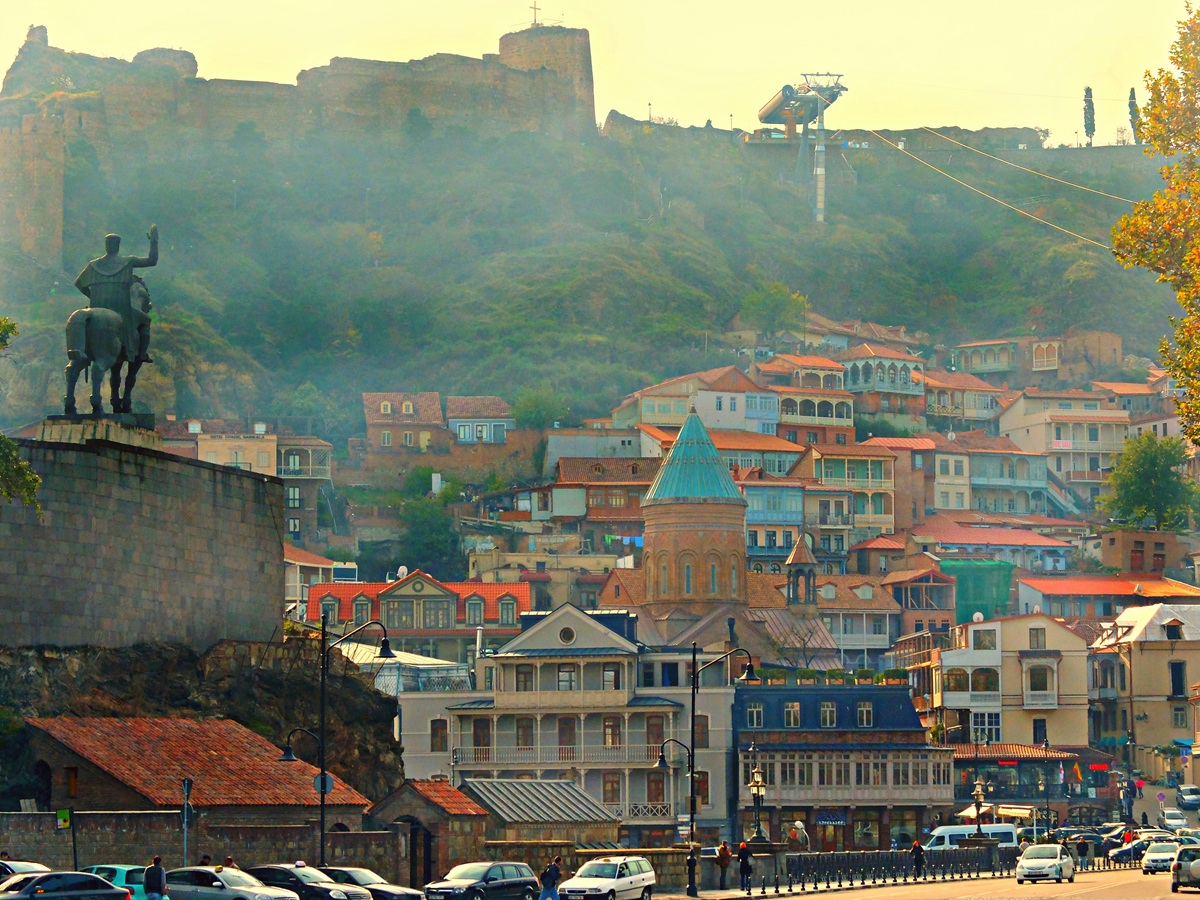Georgia's Economic Growth
The government in Tbilisi is proudly touting Georgia’s buoyant GDP figures, claiming that the economy has tripled in recent years thanks to its own policies. However, the real driving force behind this surge has been the indirect effects of the war in Ukraine. Around 100,000 Russians have fled to Georgia to escape Putin’s mobilisation, and the boom in less visible sectors of the economy—such as trade triangulation to bypass sanctions against Moscow and surrogacy clinics—has fuelled further growth.
Tbilisi (AsiaNews) – The government in Tbilisi, citing official statistics, is celebrating Georgia’s economic growth. In a statement from the ruling Georgian Dream party, it claimed: “Thanks to the country’s steady development, our economy has tripled in recent years, as highlighted by the World Bank, which also notes that poverty has significantly decreased since 2012, with around 700,000 people lifting themselves out of poverty.” This marks the 13th anniversary of the regime established by pro-Russian oligarch Bidzina Ivanishvili.
Not everyone in Georgia agrees with attributing the economic upturn to government policy, with many seeing it instead as the result of external factors unrelated to domestic decision-making. The news site Ekho.Kavkaza spoke to several economists for clarification, including Professor Sandro Rakviashvili from Georgia State University. He pointed out that the initial post-pandemic recovery was common across many countries. However, the subsequent economic boost was closely tied to the years of the war in Ukraine—“a fact that is regrettable,” he noted.
Over the past decade, as several commentators highlight, the Georgian government has introduced no notable economic reforms. Without the significant global shifts of recent years, Georgia’s growth would likely have remained at its previous average of 4–5%, rather than the current rate of 9–10% or higher. The most obvious cause is the influx of more than 100,000 Russians into Georgia, fleeing mobilisation and the broader consequences of Putin’s war. In a country with a population of just 3.5 million, this represents a substantial demographic shift. Many newcomers arrived with large amounts of cash, some looking for work, others using their capital to live comfortably in the Caucasus.
Rakviashvili also emphasised the significance of the many IT professionals arriving from Russia—people who adapt well to different social environments and who have significantly boosted Georgia’s service sector. Following sanctions imposed on Moscow, the Caucasus region has become a major transit hub for re-exports of cars and transport of machinery, linking to countries like Kyrgyzstan, Armenia, Kazakhstan, and others in Asia. German-made industrial equipment, worth millions of dollars, is being delivered there, largely to circumvent embargoes and eventually reach Russia.
In addition to these visible and relatively superficial factors, economists point to several less obvious contributors. One such sector is the surrogacy market, which has seen enormous growth. Once dominated by Russia and Ukraine, this industry has partially shifted to Georgian women following the outbreak of war. With tens of millions of potential clients in the two warring nations, Georgia has seen a rapid expansion in healthcare services needed to support surrogate pregnancies—growth that few anticipated.
Georgian universities have also become lucrative, particularly with the influx of Indian students into medical faculties. These students once studied in Moscow or Kyiv, but now invest their money in Georgia, prompting construction of new buildings, student campuses, and even charter flights for new enrollees. A similar trend is visible in Armenia—sometimes even surpassing Georgia in certain sectors—thanks to its deeper ties with Russia, despite Tbilisi’s own strong pro-Russian leanings. Unlike landlocked Armenia, however, Georgia has access to the sea, which attracts large numbers of Russian tourists who can no longer travel to Europe and cannot afford more distant or exotic destinations.
While Georgians certainly do not wish for Russia’s war to go on indefinitely, they are currently enjoying the unexpected benefits—aware, nonetheless, of the uncertain future that lies ahead.
07/02/2019 17:28







.png)










